As Women’s Month comes to a close, I want to take a moment with you to reflect on something deeply personal: self-love — especially when it comes to body positivity and mental health.
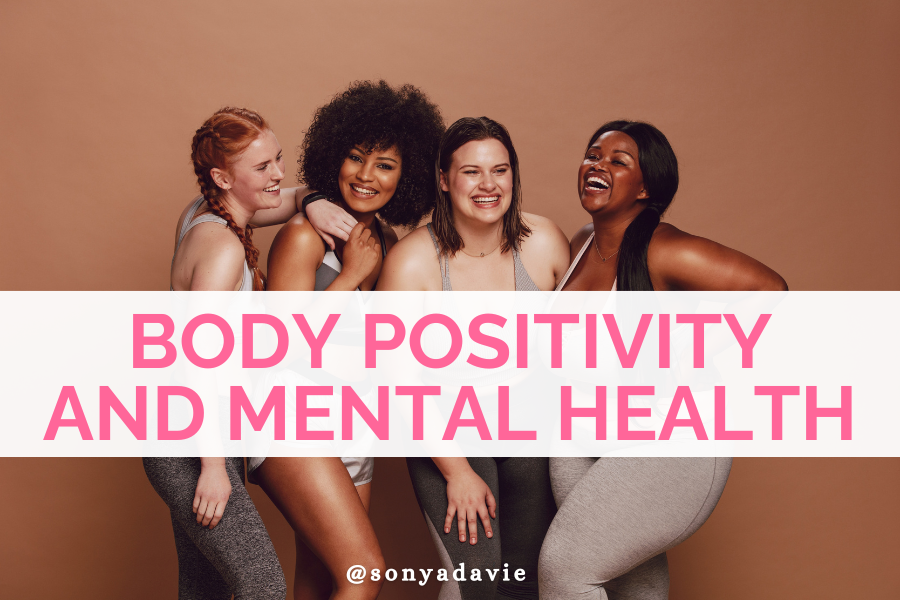
This post is all about body positivity and mental health.
We live in a world that constantly tells us what we should look like, what size is acceptable, and how we measure up to impossible beauty standards.
But the body positivity movement has challenged those outdated ideals, reminding us that all body types are worthy of love, respect, and acceptance. And for women—who face relentless pressure to fit into a mold—this movement can be incredibly empowering.
But… here’s something I believe wholeheartedly: self-love isn’t just about acceptance — it’s also about care.
Loving your body means treating it with kindness, both mentally and physically.
It’s about finding a balance between embracing who you are today while also making choices that support your overall well-being.
The Mind-Body Connection: Why Self-Love Matters
It’s no secret that how we feel about our bodies affects our mental health.
Research shows that body acceptance is linked to lower anxiety, reduced depression, and greater life satisfaction. When you embrace yourself—flaws, curves, and all—you start to break free from the toxic cycle of self-criticism.
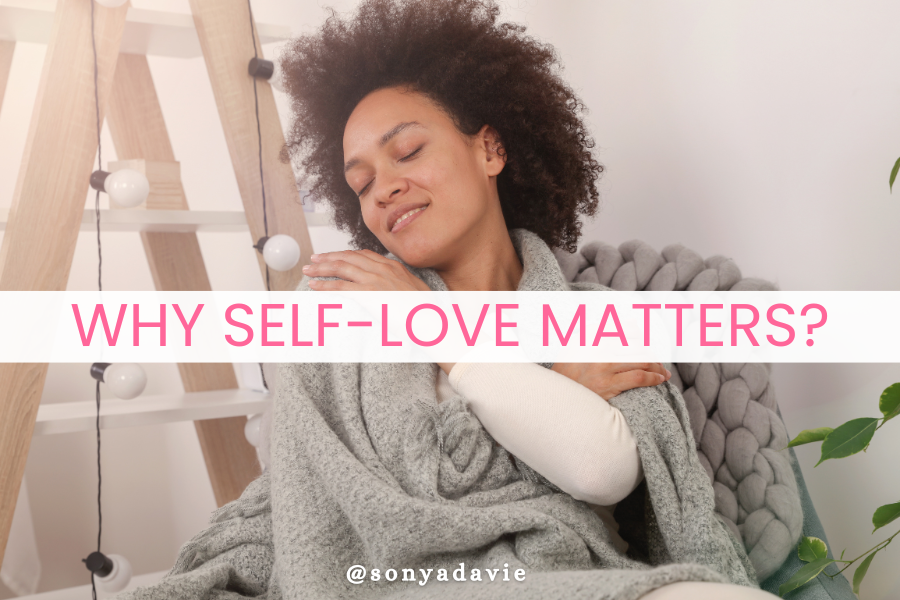
But there’s another layer to this conversation that often gets overlooked:
body positivity should never come at the expense of health.
This isn’t just about chasing diet culture or unrealistic fitness goals. It’s also about understanding how your physical health and mental well-being are deeply connected.
For example, obesity is associated with serious health risks, including:
- Cardiovascular disease – increasing the risk of heart attacks and strokes
- Type II diabetes – leading to blood sugar imbalances and long-term complications
- Joint issues – arthritis and chronic pain, especially in the knees and hips
- Metabolic syndrome – a cluster of conditions that raise the risk of heart disease, stroke, and diabetes
Visceral fat (fat stored around your organs) is particularly concerning, as it contributes to inflammation and chronic disease.
Even vitamin D deficiency—more common in individuals with obesity—can affect energy levels, immune function, and mental health, increasing the risk of fatigue and depression. (Source)
The Emotional Load You Carry
I’ve personally worked with clients whose struggles with food weren’t just about eating habits — they were about unresolved childhood trauma.
Many turn to food for comfort, especially when stress, emotional wounds, or past experiences remain unhealed.
Studies show that childhood trauma increases the risk of obesity in adulthood, often setting the stage for emotional eating, disordered eating patterns, and a complicated relationship with food. When food becomes a source of comfort rather than nourishment, it can lead to a cycle of guilt, shame, and further emotional distress.
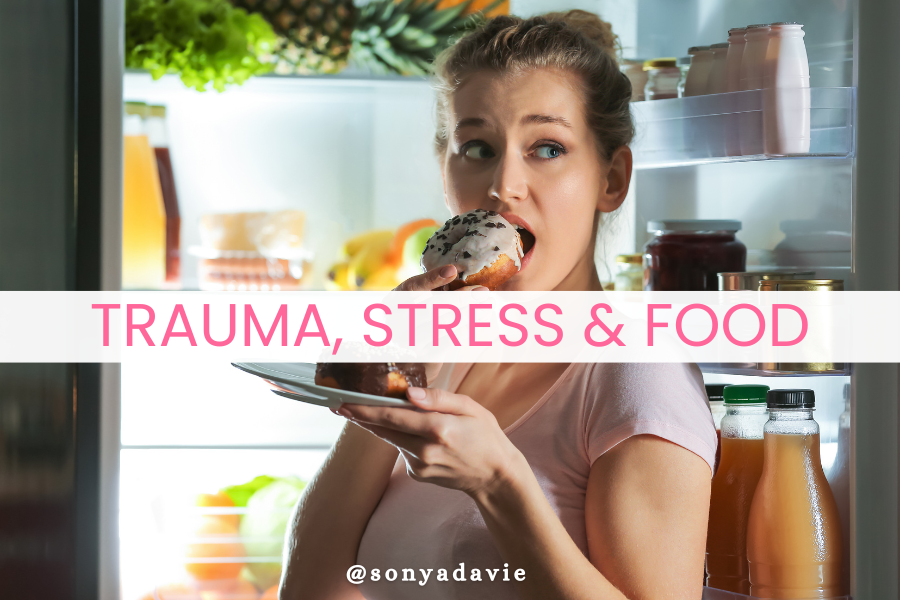
And let’s not forget chronic stress.
The demands of modern life can take a toll on your health in ways you don’t always realize. Stress hormones like cortisol can:
- Increase cravings for high-fat, high-sugar foods
- Slow down metabolism, making weight loss harder
- Disrupt sleep, which affects appetite and energy levels
- Lead to emotional eating, where food becomes a coping mechanism
This creates a vicious cycle—stress also leads to emotional eating, weight gain triggers guilt or self-criticism, and the pattern repeats.
“Breaking free” requires more than willpower; it takes self-awareness, healing, and a holistic approach to both mental and physical health.
A Balanced Approach to Self-Love and Self-Care
Here’s what I want you to know:
body positivity and health go hand in hand.
It’s not about picking one over the other. True self-love means embracing your body while also caring for it—mentally, emotionally, and physically.
So, let’s shift the focus. Instead of asking, “How do I look?” ask, “How do I feel?”
- Are you nourishing your body with foods that give you energy?
- Are you moving in ways that feel good (not just to change your size, but to feel strong and alive)?
- Are you addressing past wounds that may be affecting your relationship with your body?
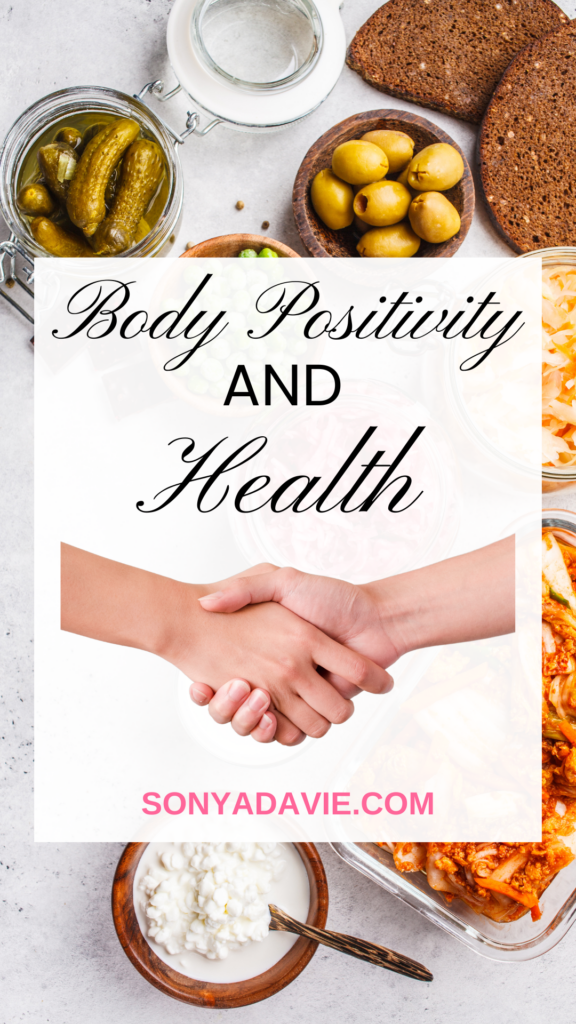
Loving yourself isn’t just about acceptance—it’s about making choices that support your well-being. That could mean:
✔️ Eating nutrient-dense foods that fuel your body
✔️ Moving in a way that brings joy (dancing, walking, yoga—whatever feels good!)
✔️ Prioritizing rest and stress management
✔️ Seeking therapy or support if emotional wounds are impacting your health
This isn’t about shame. It’s about empowerment—taking ownership of your well-being and giving yourself the love and care you truly deserve.
You Deserve Both Love and Health
You are worthy of love exactly as you are—but you are also worthy of care, growth, and nourishment.
True body positivity means appreciating your body while making choices that allow you to thrive.
It’s time to stop viewing self-care and self-love as opposites. They go hand in hand.
When you treat your body with kindness—through nourishment, movement, and healing—you create a life where confidence, health, and happiness coexist.
So today, I invite you to show yourself a little extra love. Not just by accepting your body, but by caring for it, too. Because you deserve nothing less. 💛
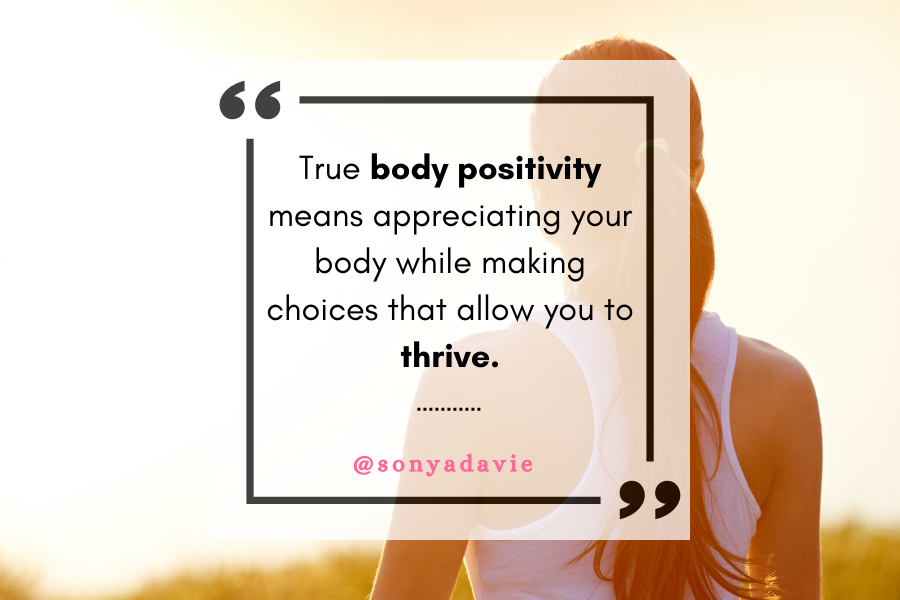
This post is all about body positivity and mental health.
+ show Comments
- Hide Comments
add a comment